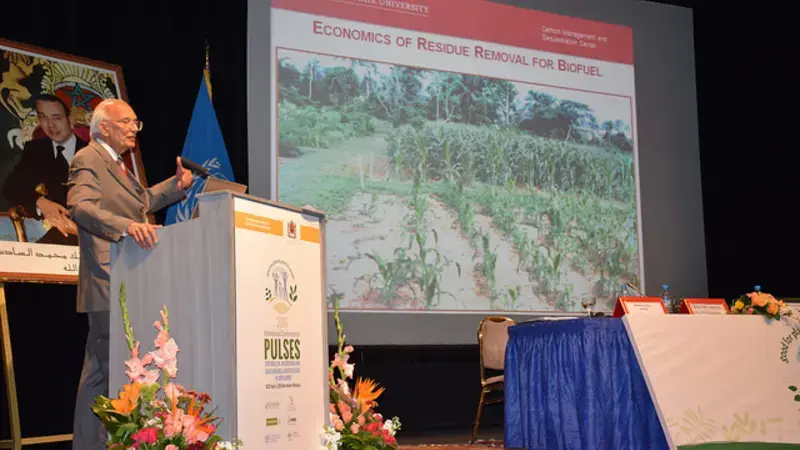What Can ICP 2016 Accomplish?

Pulses are the ANSWER proclaims Rattan Lal, World Renowned Expert on Climate-Resilient Agriculture and ICP Keynote Speaker
Dr. Rattan Lal is a distinguished university professor of Soil Science at the Ohio State University in Columbus, Ohio, USA. Previously, he was at the University of Sydney, Australia (1968-69) and at IITA in Ibadan, Nigeria (1969-87). His research focus is on climate-resilient agriculture, soil carbon sequestration, sustainable intensification, enhancing efficient use of agro-ecosystems, and sustainable management of soils of the tropics. He was included in the Thomas Reuters 2014 and 2015 list of World’s Most Influential Scientific Minds.
Click here to view Rattan Lal's full keynote presentation at the ICP conference.
What am I personally hoping to get out of the Conference?
I hope to use the ICP 2016 as an opportunity to enhance awareness about the importance of soils to address global issues. Soils are integral to any solution for adaptation and mitigation of climate change and advancing food and nutritional security. Soils must never be taken for granted and they must always be used, improved, and restored for provisioning of ecosystem services. The main strategy to address global issues with pulses is to promote Carbon Farming, support soil and terrestrial carbon sequestration, and advance the concept of carbon-neutral agriculture through outreach and establishing linkages with the CGIAR system, scientific community, general public, and the policy-makers.
Why should the general public take interest in this conference and pulses in general?
Compared to the 795 million people prone to hunger globally because of low intake of calories, there are more than 2 billion people affected by malnutrition, due to the deficiency of protein and 17 essential micronutrients. Thus, the UN’s new Sustainable Development Goals can only be met by improving human nutrition while also restoring soil and the environment. Pulses are an important source of protein and minerals and are also beneficial to improving soil quality. Increasing intake of a nutritious pulse-based diet is critical to human health and wellbeing, to improving the environment, and to adapting and mitigating abrupt climate change.
How will this Conference affect the future of food and nutrition security in the developing world?
Through the wealth of knowledge and recommendations emerging from the conference, scientific knowledge about pulses must be translated into an action plan with four major goals:
(1) increase dietary intake of pulse-based protein for human consumption
(2) enhance agronomic productivity of pulse crops through use of improved varieties and better systems of soil and crop management
(3) restore soil quality and improve water resources by including pulses in crop rotations
(4) increase awareness that the overall health of soils, plants, animals, people, and ecosystems is inter-connected and indivisible
